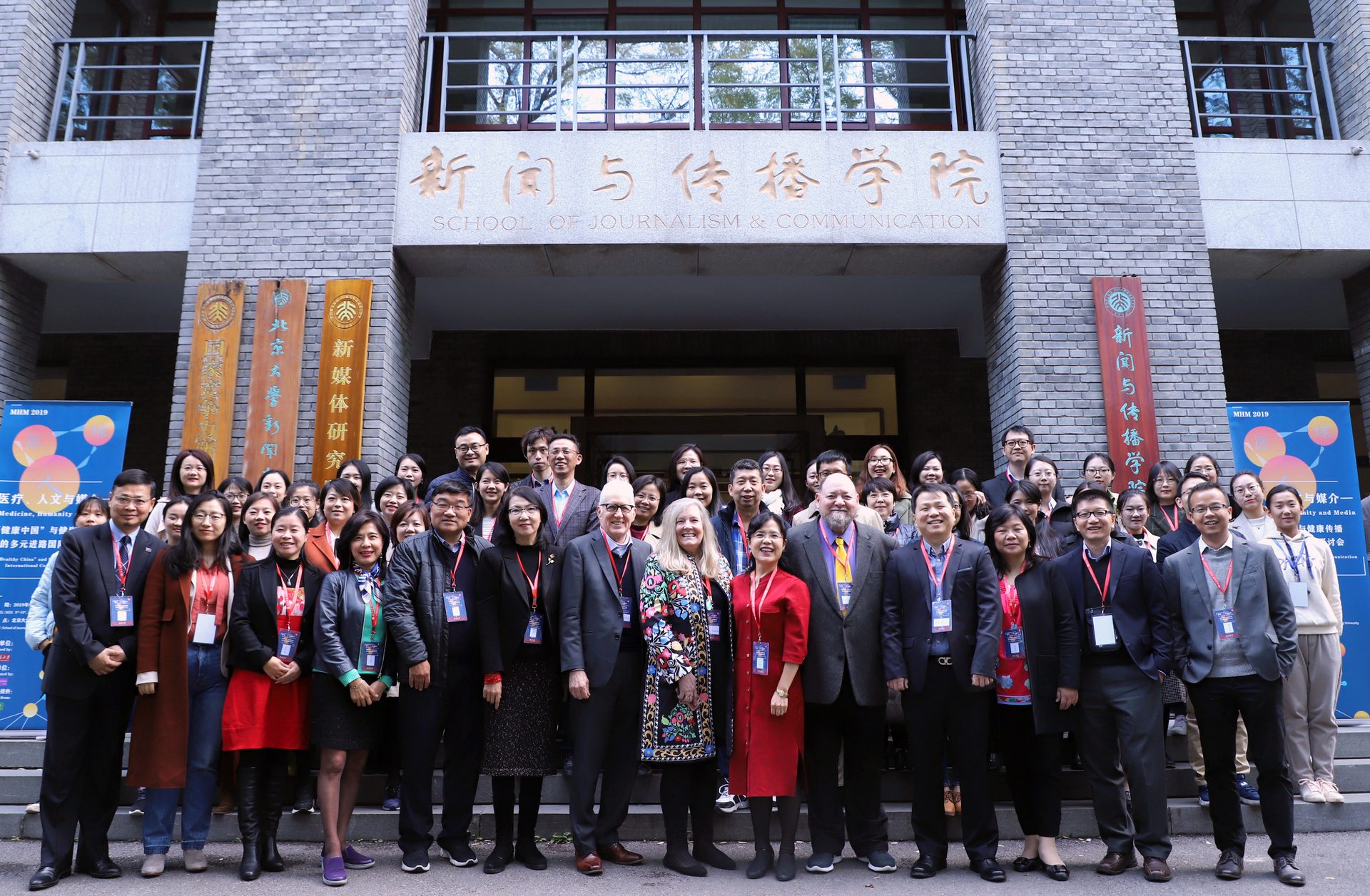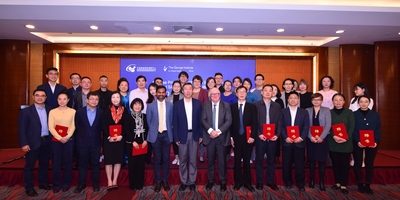
Building bridges between Healthcare, People and media
On November 10, 2019, an international academic symposium on "Healthcare, People and Media - Healthy China Initiative and Multiple Approaches to Health Communication" organized by the School of Journalism and Communication, Peking University, and The George Institute China was successfully held in Beijing. More than 100 people from the government, universities, media, hospitals, enterprises and public institutions participated in the forum, including 11 experts and scholars from the United States, Canada, Singapore, South Korea, and China, were invited as keynote speakers.
At the opening ceremony, YU Hong, Deputy Dean of the SJC, Peking University, recalled the first forum under the same theme held last year, which was just a domestic round table; now it is has expanded into an international academic event with broad multi-disciplinary attendance, reflecting the growing social concern and interest of the health communications profession.
YU Guoming, executive director of the School of Journalism and Communication at Beijing Normal University, emphasized the impact of new technologies on communications. Citing 5G as an example, he argued that this revolutionary technology will transform the field of communications drastically, and it is important for scholars to understand the mechanisms and possibilities of the 5G era characterized by "high speed, high capacity, low latency and low energy consumption".
After the opening ceremony, Professor XU Jing of the SJC, Peking University, gave the first speech on "scientific health communications promotes "Healthy China Initiative". She noted that the nature of communications exists in prompt responses to the major questions in social development. Health communications should play effective role through different levels and types of communication interventions in the field of health.
Dr. TIAN Maoyi, Senior Research Fellow at The George Institute China, gave a presentation of "challenges and opportunities for mobile health". He pointed out that with the advent of the 5G era, mobile health based on big data of disease management is bound to have a profound impact on our health systems and related interventions. He said that The George has always been committed to research of chronic non-communicable diseases, and this year particularly partnered with the Chronic Disease Center of China CDC to launch "SAPPHIRE" project in three places: Wenchuan county, Ningbo city and Yichang city, hoping to assist the government in improving the management of high blood pressure and diabetes in rural areas of China through digital health interventions.
Professor Gary L. Kreps, director of the Center for Health and Risk Communication at George Mason University talked about "the direction of health communication", he comprehensively reviewed the categories, core themes, key theoretical models, and development directions of health communication research in the United States, and highlighted his own research on global health communication.
Professor Teresa Thompson has been editor-in-chief of the academic journal Health Communications for more than 30 years. Citing her beloved families’ battle with cancer, as well as their attitudes towards death, she described how various cultures recognize “death” differently, and how the "illness notify" can have diverse effects to different patients.
Professor LIU Dehuan, Vice President of the New Media Research Institute at Peking University, shared his research experience on internet medical trust. He carried out a cluster analysis and basic population variable analysis, exploring the ethnic differences and influencing factors of medical trust among “the mobile medical communities”.
Professor ZHAO Xiaoquan from George Mason University described the "self-affirmation" phenomenon that is commonly found in health communications, which explains why communication interventions on specific health issues are more likely to receive hostile resistance from their target audience -- a frustration that is faced by many health campaigners and practitioners.
XU Meiling, a distinguished professor at the School of Communication at Taiwan University of Political Science, shared her findings on health risk communication. She pointed out that traditional risk communication is based on professional knowledge and rational analysis, while mass audiences often deal with risk in the "emotional simplicity principle", putting individual feelings in the first place.
Professor Wu Yizhen, from Fu Jen Catholic University in Taiwan, compared the different effects of risk communication in two case studies: food safety and fake cooking oil incidents in Taiwan.
Professor Chul-joo Lee of Seoul National University focused on the greater health risks experienced by the poor and the marginalized people, and whether health communication and innovations can help addressing this problem.
Professor John C. Pollock from the University of New Jersey gave the last speech of keynote session, putting forward his theory that the right to health is a new type of human right.
The sub-forum in the afternoon focused on eight topics related to health communication. Forty scholars from Beijing University, Zhejiang University, Xiamen University, Sun Yat-sen University, Wuhan University, China Agricultural University, City University of Hong Kong and other institutions shared their research and studies. Participants from multi-disciplinary fields, such as communications, social and humanities, medicine, and anthropology, submitted papers to the Organizing Committee showing a high degree of diversity regarding methods, perceptions and topics.
At the end of the meeting, YU Hong summed up the symposium by indicated that it had reached its goal of exploring the multiple approaches to health communication. Through open sharing and discussion, participants not only presented new knowledge and data, but also provided a clearer vision for the future development in health communication.


